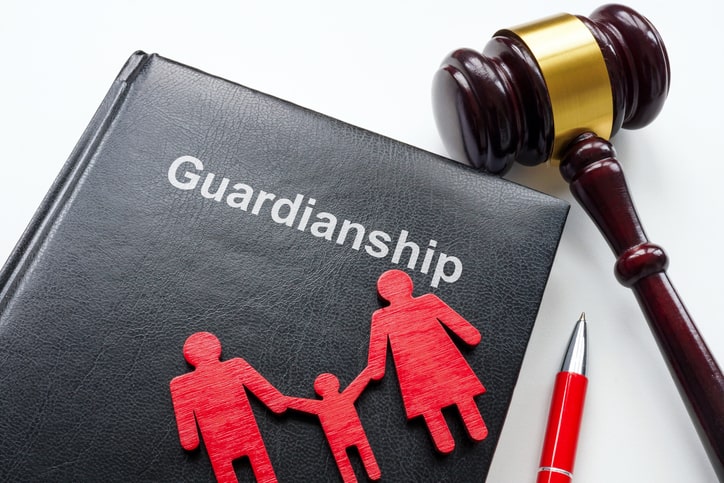We’ve all heard there’s more than one way to be a parent, but this observation is especially accurate when it comes to legal terminology. Two examples are child custody and legal guardianship. While both terms have similar definitions and the responsibilities that come with both are also comparable, there are distinct differences between custody and legal guardianship.
Both are long-term and even lifelong commitments to caregiving and both address a parent-child relationship. So, what are the differences between child custody and legal guardianship, and why do people sometimes conflate the two?

What is the Main Difference Between Guardianship and Custody?
There are several important distinctions between legal guardianship and custody, but the key difference is in biology. While child custody refers to a parent who’s given legal and/or physical custody over their own child, guardianship applies to the legal responsibility for a child when it’s given to a non-parent.
Custody can refer to either legal decision-making authority, physical custody, or both, while guardianship only applies to legal decision-making, despite the fact that a guardian may or may not also have custody. When an adult gains the guardianship of a child, it does not necessarily mean they also have physical custody of the child.
What Does Child Custody Mean in California?
When a child is born to legally married parents, they automatically have custody over the child. However, when parents divorce—or when a child is born to unmarried parents—the courts may be called upon to decide which parent gets custody and which one gets visitation, or if both parents share custody in a 50/50 parenting schedule. Custody comes in two distinct parts and the court can grant one or the other or both to either parent:
- Physical custody refers to physical care and control over a child for a specific period of time in a home together, either continually or on a parenting schedule. When a parent has physical custody, they have the responsibility for meeting the child’s needs throughout their daily routine, including nutrition, clothing, nurturing, school attendance, medical needs, and extracurricular activities.
- Legal custody refers to the authority to make important decisions for a child, including decisions about medical care, education, religion, travel, extra-curricular activities, and legal rights.
California courts consider the best interests of the child as their highest priority when deciding matters of child custody.
What is Guardianship in California?
A guardian is an adult who is given the right to make legal decisions for a minor who is not their child. Parents can appoint a guardian for their child in the event of their death as part of their estate planning, requiring a judge to review the decision and sign off on it if both biological parents die and leave children behind. In order to become a child’s legal guardian in California, an individual must meet the following qualifications:
- They must be 18 years old or older
- They must be of sound mind
- They cannot be a convicted felon
- They are a legal resident of the United States
A court may also appoint a legal guardian to assume parenting duties over a child if the child’s biological parents are incapacitated, incarcerated, or unfit due to addiction, abuse, or child neglect. Depending on individual circumstances, a guardian may have physical custody of a child, decision-making custody, or both. In some cases, a parent may retain full or partial physical custody while a guardian has legal custody; for example, in cases of a parent with cognitive impairment.
If you have questions about child custody or the legal guardianship of a child, a Los Angeles child custody attorney can help.

